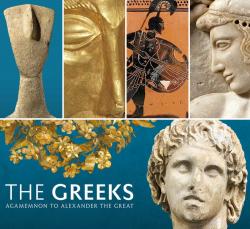The Field Museum of Chicago presents: The Greeks
The Greeks, from Agamemnon to Alexander The Great...an impressive exhibition highlighting more than 5,000 years of Greek culture.
This amazing presentation represents a scenic journey between the Greek’s Neolithic origins and the expansion of Greek culture into Asia and Africa under the leadership of Alexander the Great. As 21 Greek museums have contributed unique resources to this project, it will be the largest exhibit of the ancient Greeks in North America in 25 years.
The exhibition’s only stop in the Midwest is in Chicago, thanks to the partnership between The Field Museum and The National Hellenic Museum. As visitors enjoy The Greeks at The Field Museum, the National Hellenic Museum will also be hosting similar programs in its Greektown location.
The Greeks features over 500 magnificent ancient artifacts, some of which have never been viewed outside of Greece. Guests will enjoy viewing iconic objects from tombs of the Bronze age rulers of Mycenae and early aristocracies of ancient city states.
The majestic exhibition begins with the Neolithic period around 6000 B.C and continues up until the death of Alexander the Great in 323 B.C marking the end of the Classical period.
The exhibition also gives a glimpse into the personal lives of ancient Greeks including Minoan rulers and priestesses, warriors and ladies of Archaic Greece, athletes from the classical era in Athens and Phillip II.
William Parkinson, Field Museum Curator says, "We are honored to be able to present such an important exhibition that shows the emergence of Greek culture from its roots in the early agricultural villages of the Neolithic to the imperial expansion of Alexander...this exhibition is not your typical Art Historical display of pretty vases and statues; it really gives the visitor an opportunity to see the evolution of not only art, but also of Greek culture, politics, and economics over the long-term."


